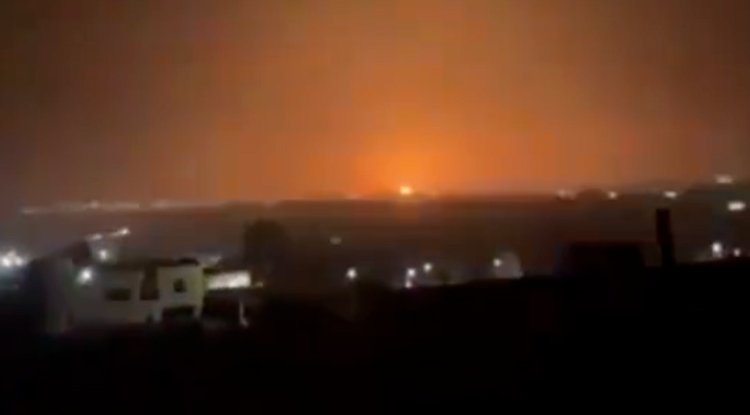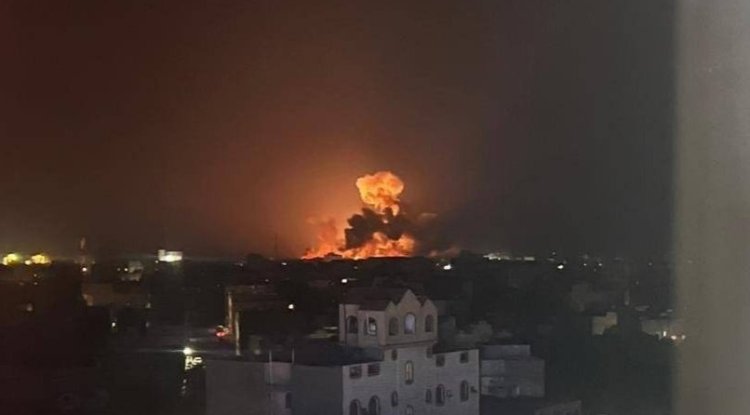全球垃圾问题迅速扩大
奥利弗·富兰克林-沃利斯勾勒出问题的规模【《垃圾场》书评】Oliver Franklin-Wallis sketches its dimensions in “Wasteland”《垃圾场》,奥利弗·富兰克林-沃利斯著。阿歇特出版社;400页;30美元。西蒙与舒斯特出版社;20英镑。Wasteland. By Oliver Franklin-Wallis. Hachette Books; 400 pages; $30. Simon & Schuster; £20狄更斯在他完成的最后一部小说《我们共同的朋友》(Our Mutual Friend)中写道,四散的纸“在每片树丛上悬挂,在每棵树木的枝稍上飘扬,被电线在空中钩住,在每一处篱墙下游荡”。自这些文字在19世纪60年代发表以来,世界上的垃圾问题在规模和构成上都发生了变化。如今,各种形式的塑料散布路边和沿岸,阻塞河流,在海洋里形成巨大的垃圾环流。微小的纳米塑料已随着风和潮汐流转渗透到各种水生生态系统中,抵达地球的两极和最高的山峰,给地球带来的后果仍不确知。IN “OUR MUTUAL FRIEND”, Charles Dickens’s last complete novel, stray paper “hangs on every bush, flutters in every tree, is caught flying by the electric wires, haunts every enclosure”. Since those words were published in the 1860s, the world’s waste problem has changed in both scale and composition. These days plastic in one form or another is strewn on verges, clogs rivers and swirls around oceans in vast gyres. Circulated by winds and tides, tiny nanoplastics have penetrated all manner of watery ecosystems, reaching both the Earth’s

奥利弗·富兰克林-沃利斯勾勒出问题的规模【《垃圾场》书评】
Oliver Franklin-Wallis sketches its dimensions in “Wasteland”

《垃圾场》,奥利弗·富兰克林-沃利斯著。阿歇特出版社;400页;30美元。西蒙与舒斯特出版社;20英镑。
Wasteland. By Oliver Franklin-Wallis. Hachette Books; 400 pages; $30. Simon & Schuster; £20
狄更斯在他完成的最后一部小说《我们共同的朋友》(Our Mutual Friend)中写道,四散的纸“在每片树丛上悬挂,在每棵树木的枝稍上飘扬,被电线在空中钩住,在每一处篱墙下游荡”。自这些文字在19世纪60年代发表以来,世界上的垃圾问题在规模和构成上都发生了变化。如今,各种形式的塑料散布路边和沿岸,阻塞河流,在海洋里形成巨大的垃圾环流。微小的纳米塑料已随着风和潮汐流转渗透到各种水生生态系统中,抵达地球的两极和最高的山峰,给地球带来的后果仍不确知。
IN “OUR MUTUAL FRIEND”, Charles Dickens’s last complete novel, stray paper “hangs on every bush, flutters in every tree, is caught flying by the electric wires, haunts every enclosure”. Since those words were published in the 1860s, the world’s waste problem has changed in both scale and composition. These days plastic in one form or another is strewn on verges, clogs rivers and swirls around oceans in vast gyres. Circulated by winds and tides, tiny nanoplastics have penetrated all manner of watery ecosystems, reaching both the Earth’s poles and its highest peaks, with unknown consequences for the planet.
为本刊撰稿的英国记者奥利弗·富兰克林-沃利斯(Oliver Franklin-Wallis)对“一次性消费”文化造成的污染感到担忧,他去了几个最能体现这种浪费的地方。在《垃圾场》(Wasteland)一书中,他参观了印度的一个垃圾填埋场,那里的垃圾堆得几乎和德里著名的顾特卜尖塔(Qutub Minar)一样高;加纳最大的二手服装市场,每周处理据信1500万件衣服;美国从前的一个矿区,被废弃的铅、锌和镉污染侵蚀;还有英格兰西北部一座废弃的核电站,与附近湖区(Lake District)的自然美景形成刺眼的对比。他认为这些地方证明了人类对地球的脆弱和资源有限是多么地短视。
Worried by the pollution caused by a throwaway culture, Oliver Franklin-Wallis—a British journalist who has written for The Economist—heads to places that best illustrate this profligacy. In “Wasteland” he visits an Indian landfill that is piled almost as high as the Qutub Minar, a well-known minaret in Delhi; Ghana’s largest second-hand clothes market, through which 15m garments are thought to pass every week; a former mining area in America that is blighted by dumped lead, zinc and cadmium; and a defunct nuclear-power plant in the north-west of England, which contrasts starkly with the natural beauty of the nearby Lake District. He sees these places as evidence of human myopia about the Earth’s fragility and the finitude of its resources.
作者指出,垃圾往往堆积在“边缘和被边缘化的地方”。他解释了“有毒殖民主义”的概念——即富裕国家把垃圾运到穷国——并用特写镜头近距离展示了其有害影响。但他也承认,垃圾贸易有时对接收一方的人们可能有好处:一个人认为无用的东西,对另一个人来说是潜在的收入来源。
Rubbish, the author notes, is often deposited “on the margins, and on the marginalised”. He explains the concept of “toxic colonialism”, whereby trash is shipped by wealthier countries to poorer ones, and shows its detrimental effects up close. But he also acknowledges that the waste trade can sometimes be beneficial to communities on the receiving end: what one person deems useless, another sees as a potential source of income.
在描述满目疮痍的景象和工业焚化炉的过程中,富兰克林-沃利斯谴责了“计划报废”的做法,即营销很快就需要更换的产品。20世纪早期一个臭名昭著的例子是“灯泡卡特尔”,各大厂商共谋缩短了灯丝的使用寿命。如今,从“快时尚”服饰到无线耳塞,很多东西很快就会被扔掉或遗忘在抽屉里。
Throughout his tour of disfigured landscapes and industrial incinerators, Mr Franklin-Wallis decries the tactic of “planned obsolescence”: ie, the marketing of products that quickly need to be replaced. A notorious early-20th-century example was the “light-bulb cartel”, who conspired to slash the lifespan of their filaments. These days items ranging from “fast fashion” to wireless earbuds are liable to be thrown away or forgotten in a drawer before long.
这本书对人物和地点的描写十分生动。英格兰南部的一位造纸厂工人“秃顶、鹰钩鼻,一副苦行僧样,微弓着背如一株缺水的郁金香”。英格兰北部的一位零浪费狂热分子的外表“介于和蔼可亲的气候活动家和游走于节日庆典的毒贩之间”。他用简短而生动的句子勾勒出加纳首都阿克拉一个赶集日的多彩和喧嚣,以及俄克拉何马州一个废弃小镇上尘土遍地的衰败景象。所幸,富兰克林-沃利斯以生花妙笔描写了丑陋的事物:在一个垃圾焚烧场,起重机“如一柄悬顶之剑,慢慢移动,发出低沉的隆隆声”;在一家垃圾处理厂,垃圾流动“永不停歇,如芭蕾舞般缤纷绚烂”。
The book comes alive in its descriptions of people and places. A paper-mill worker in southern England is “bald and aquiline, monkish, with the gentle stoop of an under-watered tulip”. The appearance of a zero-waste zealot in the north of England is “somewhere between affable climate activist and festival drug-dealer”. The colours and buzz of a market day in Accra are sketched in short, lively sentences, as is the dusty decay of an abandoned town in Oklahoma. Happily, Mr Franklin-Wallis writes stylishly about ugly things: cranes at a site for burning garbage “move slowly, Damoclesian, their noise a deep rumble”; the flow of rubbish at a waste plant is “relentless, the choreography balletic”.
《垃圾场》收集了大量事实,其中许多有趣又发人深省。全世界每秒钟售出两万个塑料瓶。2016年,全球产生了20亿吨固体废物,到2050年,这一数字将上升到33亿吨。但成堆的数字有时也会让人读来身心疲惫。每到这种时候,读者可能会不由地感慨,作者在开篇时承认垃圾不是“最吸引人的写书题材”,真是所言不虚。
“Wasteland” is heavy on facts, many of them interesting and sobering. Twenty thousand plastic bottles are sold around the world every second. The world produced 2bn tonnes of solid waste in 2016, a figure that will rise to 3.3bn tonnes by 2050. But the piles of numbers can occasionally be a strain. At such moments, readers may find themselves agreeing that waste is “not the most appealing subject” for a book, as the author himself admits near the beginning of his.
不过,总的来说他还是消除了这种印象。《垃圾场》并没有为垃圾问题提供新颖的解决方案。富兰克林-沃利斯希望大家少购买,多重复使用,并呼吁打击“漂绿”行为(公司夸大自己的环保成绩)。但他成功地描绘出了所面对挑战之庞大。他的这本书理应引发董事会和议会的认真讨论。
Overall, however, he dispels that impression. “Wasteland” does not offer novel solutions to the problem of waste. Mr Franklin-Wallis wants you to buy less and recycle more, along with a crackdown on “greenwashing” (whereby companies make exaggerated claims about their environmental credentials). But he succeeds in outlining the size of the challenge. His book should prompt serious discussion in boardrooms and parliaments. ■
What's Your Reaction?

















